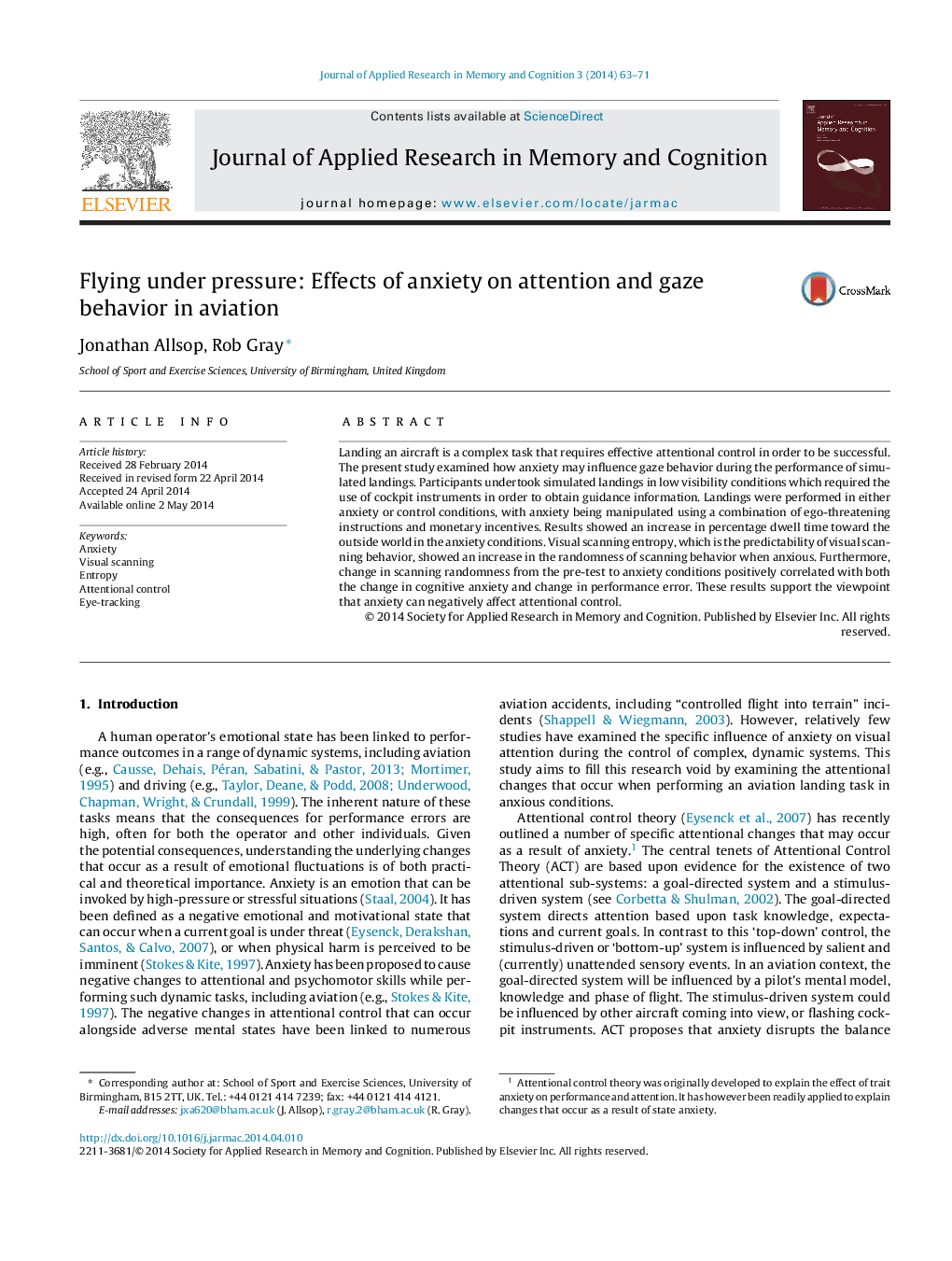| Article ID | Journal | Published Year | Pages | File Type |
|---|---|---|---|---|
| 881568 | Journal of Applied Research in Memory and Cognition | 2014 | 9 Pages |
•We examined the effect of anxiety on visual attention during simulated airplane landings.•Anxiety led to increased dwell time toward the outside world and increased randomness of visual scanning.•Change in scanning randomness was positively correlated with both the change in cognitive anxiety and change in flight performance error.•Anxiety can negatively affect attentional control.
Landing an aircraft is a complex task that requires effective attentional control in order to be successful. The present study examined how anxiety may influence gaze behavior during the performance of simulated landings. Participants undertook simulated landings in low visibility conditions which required the use of cockpit instruments in order to obtain guidance information. Landings were performed in either anxiety or control conditions, with anxiety being manipulated using a combination of ego-threatening instructions and monetary incentives. Results showed an increase in percentage dwell time toward the outside world in the anxiety conditions. Visual scanning entropy, which is the predictability of visual scanning behavior, showed an increase in the randomness of scanning behavior when anxious. Furthermore, change in scanning randomness from the pre-test to anxiety conditions positively correlated with both the change in cognitive anxiety and change in performance error. These results support the viewpoint that anxiety can negatively affect attentional control.
